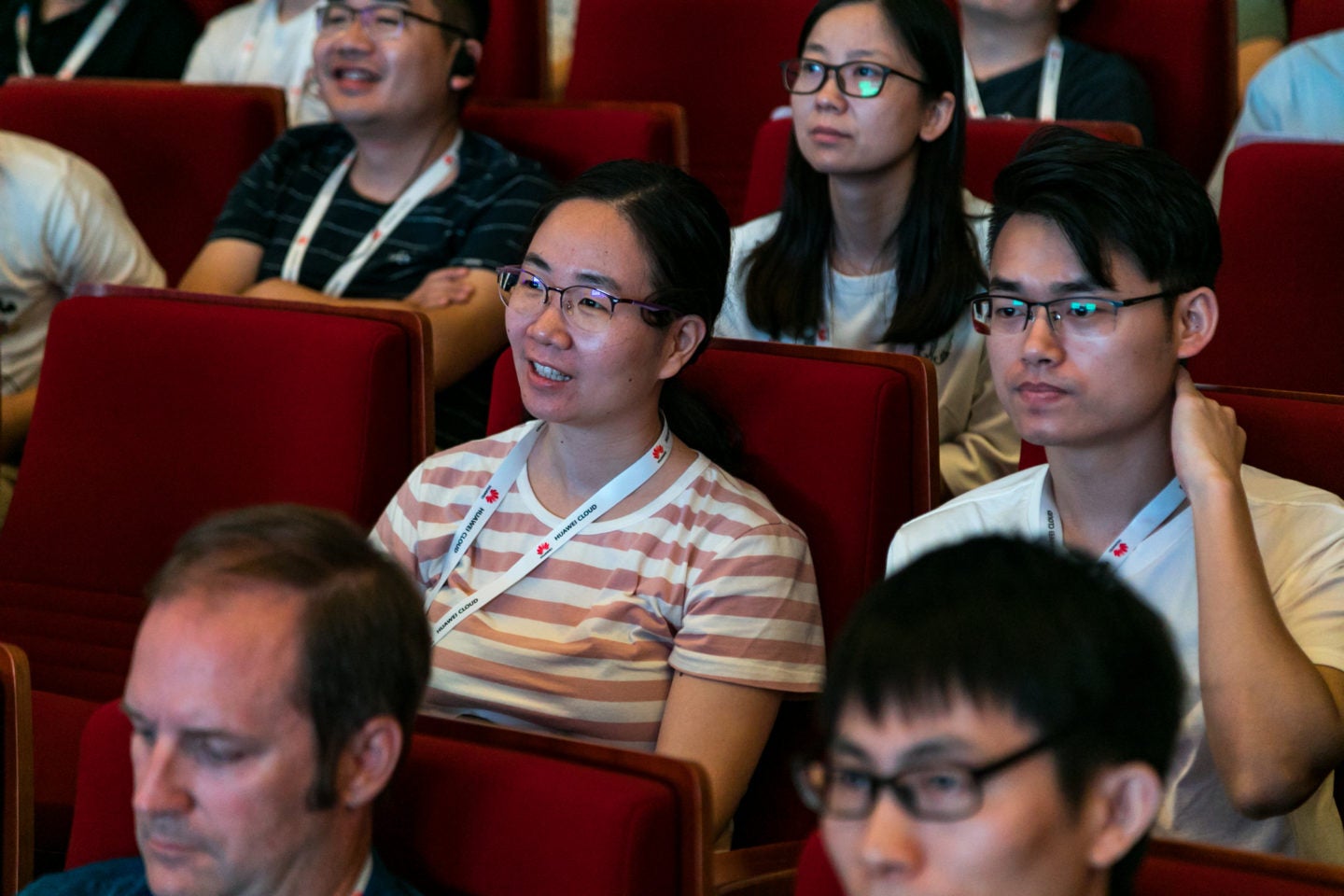重要日期
- 提案征集截止日期:太平洋标准时间 2021 年 8 月 15 日晚上11:59
- 提案征集通知日期:2021 年 9 月 23 日,星期四
- 会议日程通告日期:2021 年 9 月 27 日,星期一
- 会议活动举办日期:2021 年 12 月 9 日 (星期四)至 12 月 10 日(星期五)
Dates to Remember
- CFP Close: Sunday, August 15, 2021 at 11:59pm PDT
- CFP Notifications: Thursday, September 23, 2021
- Schedule Announced: Monday, September 27, 2021
- Event Dates: Thursday, December 9 – Friday, December 10
Tracks & Suggested Topics
**Submissions must be in English, however, if your talk is accepted you may give it in English or Chinese.**
Please check back soon as topic suggestions will be added for each track.
Linux Systems
- Filesystems and Storage
- Linux Kernel Development (Advanced & Beginner)
- Mission-Critical, Real-Time, and Long Life Systems (Scientific & Medical)
- Programming Languages and Toolchains
- io_uring
- Tracing
- Scheduler
- VFIO/IOMMU/PCI
- Kernel Dependability (static analysis, kcov, kocv triggered fuzzing testing, fuzzing)
- System Boot
- Security
- Live Patching
- eBPF
- RDMA
- Power Management
- Containers
- Checkpoint/Restart
- Distribution Kernels & Distros Considerations for Servers, Desktops, etc.
- Linux on the Desktop
- Virtualization
- Networking
Open Source Dependability
- Testing and Hardening
- Testability and stability of products based on open source projects
- Best practices for verification for dependability
- Best practices for update policies and practices
- Maintainability of products based on open source projects
- Automated regressions and management of test evidence
- Cyber Security Considerations
- Best practices for improving software transparency with SBOMs
- Best practices for vulnerability classification, exploitability assessment, and mitigations
- Best practices for vulnerability detection and reporting
- Best practices for managing security incident responses (PSIRT teams, etc.)
- Safety-Critical Considerations
- Safety considerations when developing products based on open source projects
- Sandboxing and Code Isolation techniques
- Management of security issues in safety-critical applications
- Best practices for working with certification authorities
- Traceability between requirements, source, and testing evidence
AI & Data
- Machine and Deep Learning (Framework, Libraries, Platform, Tools)
- Reinforcement Learning
- Natural Language Processing
- AI on the Edge
- Model (Benchmarking, Training, Parameter, Format, Marketplace, Workflow, Inference, Tools)
- Notebook Environments
- Data (Versioning, Format, Pipeline Management, Stream Processing, SQL Engines, Feature Engineering, Visualization, Governance, Labeling)
- Security and Privacy
- Trusted and Responsible AI (Explainability, Adversarial, Bias, Fairness)
Embedded & IoT
- Audio, Video, Streaming Media and Graphics
- System Size
- Boot Speed
- Embedded StorageTechnologies
- Real-Time Linux – Performance, Tuning, and Mainlining
- SDKs for Embedded Products
- Flash Memory Devices and Filesystems
- Build Systems, Embedded Distributions and Development Tools
- Linux in Devices such as Mobile Phones, DVRs, TV, Cameras, etc.
- Drones and Robots
- Linux in the Internet of Things and Edge Computing
- Practical Experiences and War Stories
- Standards
- Public Infrastructure
- Outside World Meets IoT RTOSes
- NTP and Synchronization
- Connected Sensors
- EMF/RFI Impact
- Real-Time Considerations
- Communication Technologies
- Best practices Working with Resource Constraints
- Code Footprint Minimization
- Sensor Interaction
- Power Usage
- Open Hardware Support
- Hardware/Software tradeoffs for Acceleration Technologies
- Cybersecurity & Safety Considerations for Systems not Based on Linux
Cloud Infrastructure
- Open Cloud Infrastructure
- Hybrid & Multicloud
- Edge Cloud Computing
- Container-Native Virtualization
- Container and Infrastructure Security
- Cloud Native Storage
- Infrastructure-as-Code
Cloud Native Development
- CI/CD, Configuration Management
- Cloud-native Application Development
- Architectures and Architectural Patterns
- APIs
- Cloud-native Developer and Operator Experience
- Observability: Metrics, Logging, Tracing, Service Mesh
- Serverless and Functions-as-a-Service
- Security/Authentication
- Data Flow Management
Leadership & Management
- Community & Business Leadership
- Incentivization and Engagement
- Software Development Methodologies and Platforms
- Building Internal Innersource Communities
- Remote Team Management and Methods
- Bug/Issue Management and Triage
- Communication Platforms and Methods
- Open Source Governance and Models
- Mentoring and Training
- Event Strategy
- Content Management and Social Media
- DevOps Culture
- Community Management
- Advocacy and Evangelism
- Open Source Program Office Management (OSPOCon @ OSS)
- Creation and Best Practices of Open Source Program Offices (OSPOs)
- Consuming and Contributing to Open Source
- Managing Competing Corporate Interests while Driving Coherent Communities
- How to Vet the Viability of OS Projects
- Open Source + Startup Business Models
- Internal vs External Developer Adoption
- Handling License Obligations in Organizations
Wildcard
- WebAssembly (Wasm)
- Emerging Platforms (Software & Hardware)
- Networking
- Blockchain
- Public Health/COVID
- Open Hardware
- AR/VR with Cloud Native
Submission Types
- Session Presentation (40-50 minutes in length)
- Panel Discussion (40-50 minutes in length)
- Birds of a Feather Session (BoFs are typically held in the evenings, from 45 minutes – and up to 1 hour in length)
- Tutorial (1.5 – 2 hours in length)
Important Notes
- When submitting a talk, you will be asked to select the Key Topic Area in which you’d like to submit. You may only submit for One Key Topic Area so please review all carefully before making your selection. We understand that some proposals could potentially fit into multiple topic areas. Don’t worry, our program chairs are working together to move proposals to other areas as needed for additional review.
- Panel submissions must include the names of all participants in the initial submission to be considered. In addition, The Linux Foundation does not accept submissions with all-male panels in an effort to increase speaker diversity.
- Complimentary Passes For Speakers – One complimentary pass for the event will be provided for the accepted primary speaker per submission, and a substantially discounted pass will be available for co-speakers. For panel sessions, all panelists will receive a complimentary pass.
- Avoid sales or marketing pitches and discussing unlicensed or potentially closed-source technologies when preparing your proposal; these talks are almost always rejected due to the fact that they take away from the integrity of our events, and are rarely well-received by conference attendees.
- All accepted speakers are required to submit their slides prior to the event.
Preparing to Submit Your Proposal
While it is not our intention to provide you with strict instructions on how to prepare your proposal, we hope you will take a moment to review the following guidelines that we have put together to help you prepare the best submission possible. To get started, here are three things that you should consider before submitting your proposal:
- What are you hoping to get from your presentation?
- What do you expect the audience to gain from your presentation?
- How will your presentation help better the ecosystem?
There are plenty of ways to give a presentation about projects and technologies without focusing on company-specific efforts. Remember the things to consider that we mentioned above when writing your proposal and think of ways to make it interesting for attendees while still letting you share your experiences, educate the community about an issue, or generate interest in a project.
First Time Submitting? Don’t Feel Intimidated
Linux Foundation events are an excellent way to get to know the community and share your ideas and the work that you are doing and we strongly encourage first-time speakers to submit talks for our events. In the instance that you aren’t sure about your abstract, reach out to us and we will be more than happy to work with you on your proposal.
How To Give a Great Tech Talk
In the instance that your talk is accepted, we want to make sure that you give the best presentation possible. To do this, we enlisted the help of seasoned conference speaker Josh Berkus who has prepared an in-depth tutorial on “How to Give a Great Tech Talk”.
Code of Conduct
The Linux Foundation and its project communities are dedicated to providing a harassment-free experience for participants at all of our events. We encourage all submitters to review our complete Code of Conduct and adhere to it in the words and images they use within their proposal.


